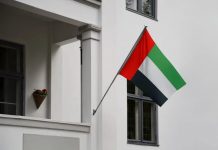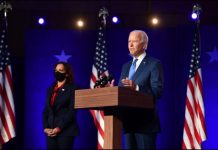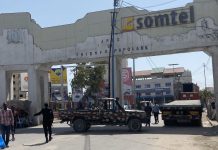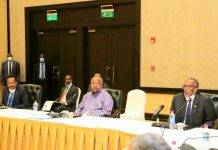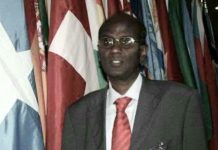Mogadishu (UM) – One of the founding members of America, Benjamin Franklin, famously said, “In this world nothing can be said to be certain, except death and taxes.” Today, his nation is the world’s only superpower and its people the wealthiest and most innovative.
Somalia is of course nowhere near America in anything, but it has vital lessons to learn from Benjamin Franklin’s statement. On Friday night, the Somali Finance Minister, Dr. Abdirahman Beileh, spoke passionately about the importance of taxation to finance public expenditure and investment on television. He made a coherent case which also promised that this government will improve fiscal transparency and earn the trust of the taxpayers to collect and spend their hard-earned money in line with priorities that advance their own nation and personal interests.
Every government needs finances to perform public services and to administer the affairs of the state. The government itself has no money of its own but collects it from citizens in the form of tax. Tax policy, its collection and creating the environment in which to enhance national productivity and wealth to increase government revenue lies with the government. However, in Somalia confused political mandates, overlapping priorities and weak capacity have combined to make all these a real challenge.
Today, the government is seriously focused on domestic revenue generation to mobilise financing for public administration and service provision. The President, Ministry of Finance, PM, the Cabinet Economic Committee and the international Financial Institutions, including the IMF and World Bank are working closely on this single issue. This is very much welcome, but a possible stumbling block lies ahead for domestic revenue mobilisation through taxes.
Somali MP’s have decided that they are exempt from taxes. Since passing the supplementary budget nearly 3 months ago, they have refused to pay taxes on their generous income of just over $4000 which includes around a $1000 as security allowance. Their argument is that they do not earn a salary but an allowance. Clearly, this is absolute nonsense.
Under Somali Income Tax law, all income is taxable including that of the MP’s. In the past taxes from MP’s was deducted at source just like all other civil servants until the gentleman’s agreement with the Ministry of Finance during the supplementary budget re-negotiations this year. The Ministry of Finance must reverse this policy and uphold the law which applies to all citizens no matter how privileged they maybe.
Taxes are the basis for domestic revenue generation and continuing to exempt MP’s is both illegal and immoral. On the latter point, how can those who are paid from citizens taxes then refuse to reciprocate? With what moral authority will the government enforce tax laws, as it intends, against the poorest in society and the business community when their lawmakers are openly evading it? For the government to have any hope of legitimate domestic revenue generation, it must make MPs pay their fair share of taxes.
Somali MPs have become used to forcibly snatching privileges from frightened governments and exempting themselves from burden sharing with the public. This can no longer continue. All MPs who refuse to pay taxes on their income should reassess the meaning of their title “Xildhibaan,” as they may find that they are in contradiction. The hard-working Somali public must also let their supposed representatives know that this cannot be done in their name.









